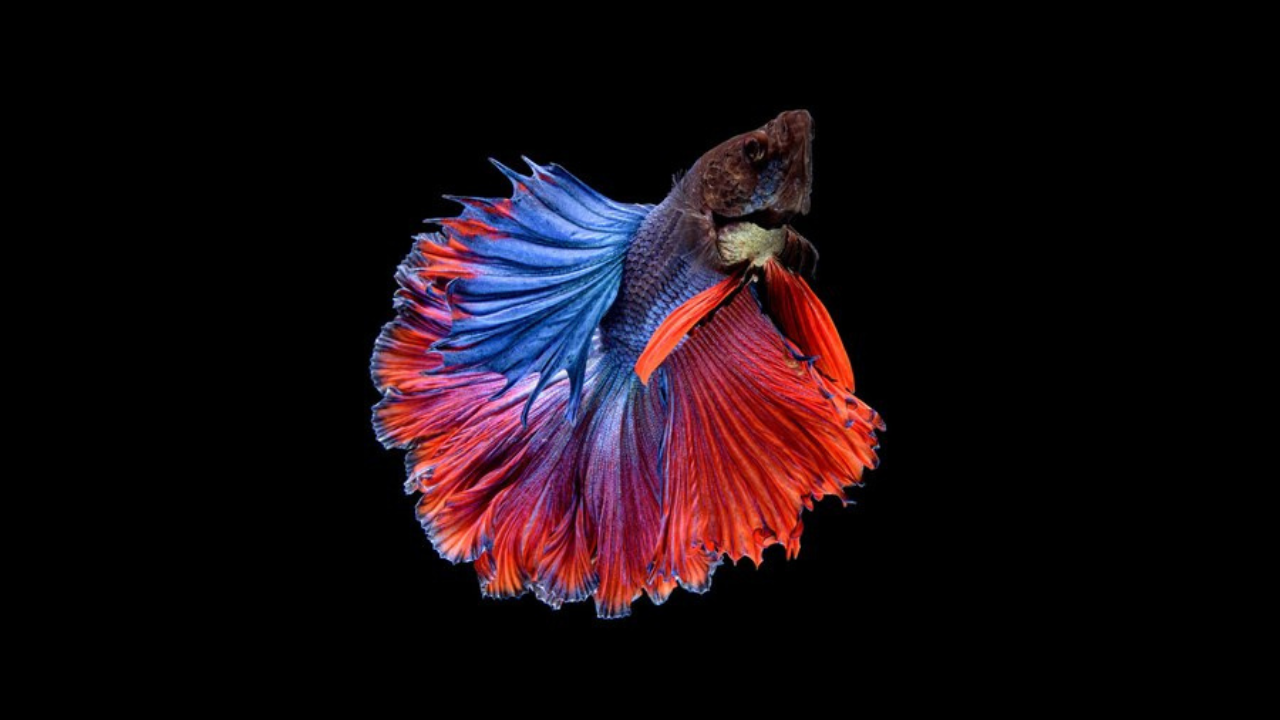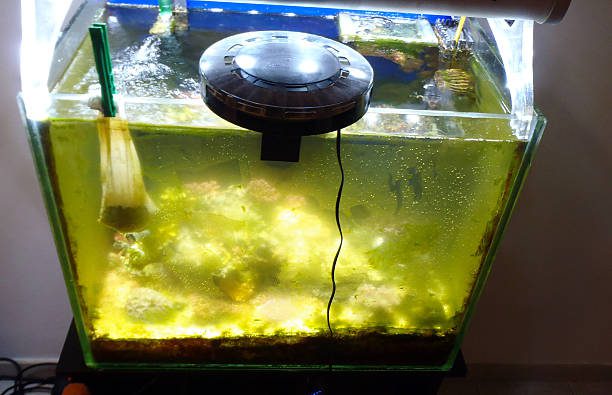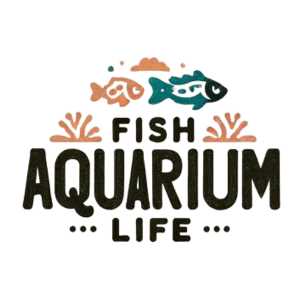Betta fish are beloved pets, admired for their bright colors, dynamic behavior, and ability to thrive in a wide range of conditions. These fascinating creatures bring joy to those in the hobby of fishkeeping.
However, keeping Bettas healthy and well-fed is among the biggest responsibilities of any keeper, especially during challenging situations like a vacation or an extended trip. They require proper food and attention to ensure they can survive and stay content over a long period.
The key question is: how many days can Betta fish survive without eating?

This article will explore the fascinating world of Betta fish, explaining their unique feeding habits and how to ensure their well-being. With a focus on avoiding underfeeding or overfeeding, this expert-backed guide shares essential tips to maintain a balanced diet, prevent issues, and keep your Betta healthy and active. By understanding their vibrant nature and potential consequences of improper care, you’ll learn to create a consistent routine that helps these beautiful creatures thrive.
How Long Can Betta Fish Live Without Food?
Betta fish are hardy creatures, but how long can they truly go without eating? In the wild, Bettas often face sparse resources in their natural habitat and have adapted to live for days or even weeks without proper food. Their bodies are built to endure cycles of starvation, allowing them to survive in tough conditions. However, in an aquarium, things are very different. Bettas in captivity are not used to such harsh realities and may face significant stress if left without food for too long.
Despite their small size, Betta fish have a stomach roughly as small as their eyes, meaning they don’t need a lot of food to remain healthy. Even though they are generally picky eaters, most can survive 10-14 days without eating. However, prolonged periods of starvation can weaken their immune system, leaving them vulnerable to diseases. To ensure the health and happiness of your Betta, it’s essential to provide consistent care and avoid putting them through unnecessary stress.
What Happens When Betta Fish Go Without Food?
Fasting for short periods can be surprisingly beneficial for Bettas, as their bodies get a chance to process and excrete built-up waste. This is why a regular part of some Betta caretakers’ routines includes planned fasting days, especially when Bettas are suffering from bloating or a disease that leaves them lethargic. A controlled fast of one or two days can aid digestion and improve overall health without harming the fish. However, going too long without food is risky, as depriving them of necessary nutrients leads to serious problems.
Extended fasting weakens the bodies of Betta fish, making them lethargic and less likely to move. Prolonged starvation for more than two weeks can result in salvation and even death. The lack of food not only leaves them sick but also compromises their ability to fight off diseases, as their energy and immunity are depleted. To ensure your Betta stays healthy, avoid depriving them of the fuel they need to thrive and maintain a balanced diet.
How Often Should I Feed Betta Fish?
Betta fish thrive on small, frequent feedings, mimicking their natural behavior as carnivorous animals. In nature, they feed on tiny prey like mosquito larvae, shrimp, and daphnia, consuming protein-rich food in small amounts. Their stomach is roughly the size of a single eyeball, so it’s important to avoid overfeeding. Because their intestines are short, they process and release food quickly, making it essential to provide multiple meals a day.
As a Betta owner, aim to feed your fish two to three times per day, based on the temperature of the water in the tank, as it impacts their digestion. Feeding just enough to avoid wasting food ensures they remain healthy and active. Unlike herbivores, Bettas don’t eat slow-digesting meals, so keeping them sated requires consistent care. By sticking to this routine, you’ll give your Betta the best chance at long-term living and health.
Pro Tip: Bettas are intelligent and often associate their owners with feeding time. They may “beg” for food whenever you approach the tank, even if they’re not hungry. Don’t let their charm trick you into overfeeding!
How Healthy Is My Betta Fish?
Before leaving your betta fish for an extended trip, it’s crucial to study their overall behavior and look for signs of potential health issues. Healthy Bettas are active and responsive, but certain symptoms such as clamped or frayed fins, a listless demeanor, or excess slime coat production can indicate underlying conditions. Other warning signs include cloudy eyes, rapid or labored breathing, or visible red or white patches on their skin. These could point to stress, disease, or other issues that may make it harder for them to cope with a period of fasting.
To ensure your pet remains healthy, always take stock of their condition and examine your tank’s water quality using a reliable freshwater test kit. A master keeper should be prepared to treat any illnesses promptly, as even a mild condition can worsen if left unaddressed. Without intervention, your Betta may become severely ill, struggle with feeding, or even die. Regularly checking their stress levels and acting on rising concerns can help maintain their health and prevent long-term issues.
How Can I Feed My Betta Fish While I Am On Vacation?
Here are some steps you can take to ensure your Betta stays in good health while you’re not home.
1. Invest in an Automatic Feeder
The main challenge you’ll encounter when you’re not around is ensuring your Betta fish gets fed on a regular schedule. Although Betta fish can go for extended periods without food, it’s not ideal to let them, especially when there are ways to prevent it.

https://media.istockphoto.com/
If you’re planning to be away, an Automatic Feeder is an excellent way to ensure your beloved Bettas are well-fed. These devices are designed to dispense small amounts of food at regular intervals and can be set to work for as long as needed. This ensures your fish always have something to eat, even when you’re not there. To get the best results, it’s essential to properly calibrate the feeder to avoid overfeeding, which can harm your Betta’s health.
2.Test Your Automatic Feeder
When using an automatic feeder for your Betta fish, it’s crucial to test it beforehand to avoid potential problems. Improperly calibrated feeders can dump excessive contents into the tank, leading to overfeeding, polluted water, and possibly killing your fish. To prevent these issues, always choose high-quality equipment that is less likely to break or malfunction. Cheap feeders may seem appealing, but they often result in more harm than good, breaking easily or failing to work as intended.
Take the time to ensure you’re keeping your feeder properly calibrated and running smoothly. By being mindful of these steps and choosing a reliable feeder, you can avoid overfeed scenarios and ensure your Betta thrives. Investing in quality will save you from unnecessary stress and protect your tank environment in the long run.
3.Balanced Nutrition for Your Betta
A varied diet is important for maintaining the health of your Betta, so ensure your automatic feeder is stocked with a mix of high-quality, dry and wet food. Adding an occasional treat like brine shrimp or bloodworms is ideal to keep them active and satisfied. If your feeder can load specific portions, this feature can further enhance feeding efficiency. However, even with a single food option, there’s no need to worry—your Betta will remain healthy as long as their diet is nutritious and well-balanced.
4.Ensuring the Right Environment
Betta fish are highly sensitive to temperature changes and need a stable, well-ventilated location to stay healthy. If you live in a cold area, make sure to use a heater to maintain the right conditions. Be sure to avoid placing the tank in direct sunlight or near strong heat sources, as this can drastically alter the water temperature and promote unwanted algae growth. Keeping their environment cool yet comfortable is key to their well-being.
5.Do a Partial Water Change
To ensure your Betta fish remains healthy while you’re away, always clean and refill their tank before leaving. Perform at least a 50% water change to provide them with fresh water and reduce harmful contaminants. If you’re using tap water, add a conditioner to remove chlorine and other impurities. Even with an automatic feeder, poor water quality can lead to a sick or even dying Betta, so maintaining clean access to water is critical for their ability to survive during this period.
6.Adding a companion to your Betta’s tank
If you’re planning to be away for an extended time, adding a tank mate for your Betta could help keep them engaged. While Bettas don’t experience loneliness like humans, a companion in the tank can stimulate them and provide activity in your absence. A compatible species will allow the Betta to continually interact, keeping them active and reducing potential stress.
However, it’s essential to choose the right types of fish, as Bettas can be territorial and may not get along with all species. Look for certain species that are calm and less likely to provoke aggression. This thoughtful pairing can create a harmonious environment while ensuring your Betta remains healthy and entertained.
7.Ensuring Proper Care While You’re Away
If you’re going to be away for a long time, especially a month or more, it’s a good idea to have someone visit your house to check on your pet. Even with an automatic feeder, having a person monitor the tanks can ensure everything remains stable. They can notify you immediately of any changes and, if needed, load additional food or confirm that the feeder is still working correctly.
This is particularly important if you have multiple tanks, as maintaining them during extended absences requires extra care. A weekly visit can make all the difference in keeping your Betta healthy and stress-free while you’re away.
8.Maintain a Standard Day/Night Cycle
To support your Betta’s health, use automatic timers to create a regular day/night cycle in their tank. This setup helps mimic their natural habitat, ensuring their internal clocks stay balanced and reducing stress. A consistent period of light and darkness is especially important for plants, as they need light to photosynthesize. Without this, plants can become dead and begin to foul the water, harming the tank’s balance. By maintaining this standard cycle, you’ll keep both your Betta and their environment in good condition.
Ensure Their Health Before Leaving
Before you leave home, take a few days to observe your fish closely. If they appear sick, it’s important to arrange for proper care, ideally by a trusted hobbyist who can monitor them during your departure. If your pets are healthy, you can proceed with your plans without worry. Knowing their condition ensures you won’t face any unpleasant surprises when you get back.
Even if your options are limited, taking time to check on their health beforehand can prevent problems later. A little preparation will make a big difference in keeping your Betta comfortable and safe while you’re away.
FAQs
How long can I not feed my betta fish?
Yes, a healthy adult Betta fish can live without food for up to 2 weeks, but it is recommended to limit fasting to 5-6 days to avoid risks. While they can handle short periods without eating, extended starving increases their stress level and may lead to organ failure or even disease contraction. Always monitor their health during this time and ensure they return to their normal diet quickly to keep them strong.
How do I feed my betta fish while on vacation?
One option to ensure your Betta fish is properly fed during a vacation is to use an automatic feeder. This device can be programmed to release a set amount of food at specific intervals, making it ideal for trips as long as three weeks. By feeding your fish this way, you can relax knowing they’ll be cared for while you’re away, without any gaps in their routine.
Should I skip 1 day feeding betta?
It’s perfectly fine to skip feeding your Betta for a day. In fact, I recommend fasting them every 7-10 days to improve their digestion. Feeding your fish once or twice a day works well, but personally, I prefer once because they don’t need too much food. Keeping their diet at a healthy baseline ensures their well-being without overfeeding.
Can betta fish survive 4 days without food?
Yes, Betta fish can live without food for up to 2 weeks, but it’s recommended not to exceed 5-6 days for a healthy adult. Short periods of fasting are fine, but extended starvation can raise stress levels and lead to organ failure or even disease contraction. Proper planning ensures your Betta stays healthy during this time without unnecessary risks.
Conclusion
Your Betta fish can remain healthy even during an extended period if you follow the right guidelines. It’s important to provide a varied diet and feed them small, regular meals to ensure they stay well-fed. While it is not recommended to leave them without food for too long, there are plenty of ways to keep them nourished and cared for, even if you’re away and can’t give them personal care.
By taking these steps, you can help your Betta stay happy and healthy. Following a routine and planning ahead will ensure your fish thrives, keeping them safe and well in your absence. Consistent care and attention to their needs are the keys to their long-term well-being.
